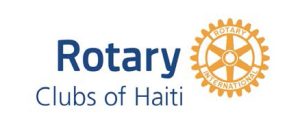ENGAGEMENT
Hanwash Ambassadors
 HANWASH has established a program of HANWASH volunteer ambassadors within each of the 22 Rotary Clubs in Haiti. These ambassadors are local advocates and act as an intermediary between other citizens and local authorities. They facilitate dialogue and decision-making and introduce greater citizen-led oversight and scrutiny to the development of water and sanitation infrastructure in the communities they support. Each Ambassador leads a committee that identifies and develops relationships with local NGOs, civil society organizations and other WASH supporters. Then, the committee encourages adoption of the HANWASH framework and Core Values to ensure quality service and advancement of the HANWASH mission in line with government policy.
HANWASH has established a program of HANWASH volunteer ambassadors within each of the 22 Rotary Clubs in Haiti. These ambassadors are local advocates and act as an intermediary between other citizens and local authorities. They facilitate dialogue and decision-making and introduce greater citizen-led oversight and scrutiny to the development of water and sanitation infrastructure in the communities they support. Each Ambassador leads a committee that identifies and develops relationships with local NGOs, civil society organizations and other WASH supporters. Then, the committee encourages adoption of the HANWASH framework and Core Values to ensure quality service and advancement of the HANWASH mission in line with government policy.
Engagement of the community and civil society to date has been limited to Rotary clubs and HANWASH Ambassadors and their sphere of influence. Now HANWASH is widening this group to include the local business community, the population at large and other civil society organizations. Marketing and promotional campaigns through social and traditional media, as well as through participation in market day events are used as a catalyst to raise awareness and increase engagement.
Many NGOs and Rotary Clubs who have brought financial and technical support to water projects in Haiti believe that water and sanitation service should be available free of charge, despite this being contrary to government policy and a history of citizens paying for service. For decades, Haiti has benefited from aid in the WASH sector from various organizations. Despite this support, less than half of the population still lacks access to safe drinking water and adequate sanitation. In many cases, international efforts have not appropriately or sufficiently engaged communities in the process, and this has undermined the sustainability of these investments.
Through Rotarians living in Haiti, the HANWASH program deliberately engages local citizens and leaders in the creation and implementation of a “Commune Action Master Plan”. The Commune Action Master Planning process is led by trained animators in a conversation (or many conversations) over several months to determine where to construct new sanitation or drinking water infrastructure or which dysfunctional wells or water or sanitation systems can be rehabilitated. During this dialogue, decisions are made as to the priority and timing of the investments that need to happen to bring universal WASH coverage to the commune. Our NGO partners are invited to participate in this process so they can see a different way of doing things which can enhance local ownership and long-term sustainability.
Track Record
As a leader in sustainable solutions, Rotary International and its 35,000+ clubs around the world have long acknowledged that when it comes to the health, education, economic development and mortality of a community, there is no greater need than the need for clean water and sanitation. Rotary volunteers are mobilizing resources and investing in the infrastructure and training essential to yield long-term change to ensure sustainable access to clean water, sanitation and hygiene worldwide. To most, the challenge would appear too daunting. But to Rotarians, the life-changing results are the only motivation necessary.

